28 de octubre 2018

Children of Exile: The Births “Sowing Hope” in the Camp of Nicaraguan Farmers

PUBLICIDAD 1M
PUBLICIDAD 4D
PUBLICIDAD 5D
His dream of being a doctor never came to fruition, but the little he learned of first aid helped him attend during the occupation of the UNAN
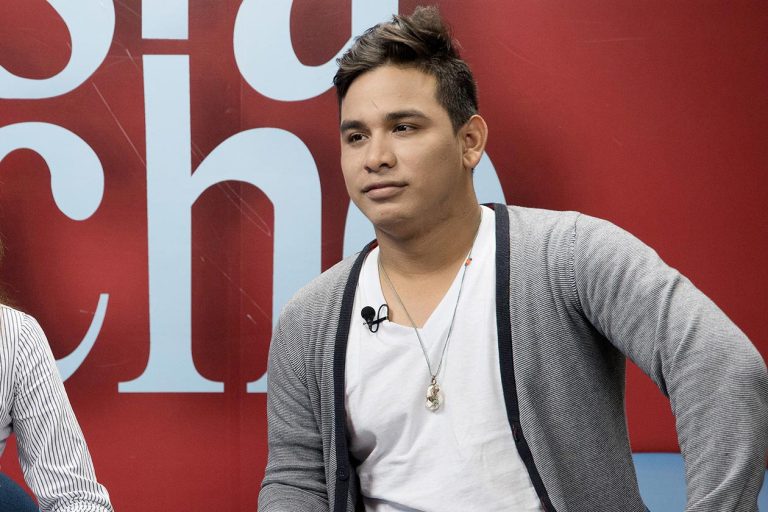
July 13 was a day of anguish for Alma Gonzalez. She recalls that she suffered sharp pains in her chest when at last she heard her son’s voice on the telephone confirming that he was alive but trapped in the Church of Divine Mercy in Managua.
Her son, Jonathan Lopez, had taken refuge in the church, along with scores of other young people who’d been occupying the nearby University. Outside, dozens of police and paramilitary shot non-stop volleys of gunfire towards them.
Minutes previously, Alma had learned from the television that the police and paramiltary forces were surrounding the young people who were fleeing the brutal attack on the UNAN-Managua where they had remained in occupation for more than two months in protest against the government of Daniel Ortega.
Jonathan Lopez had left behind the comforts of his home to become a trusted leader and student spokesperson. He was sure that he was struggling for a just cause. Proof of this is that he never covered his face and was always front and center as the voice of the young people in the occupation.
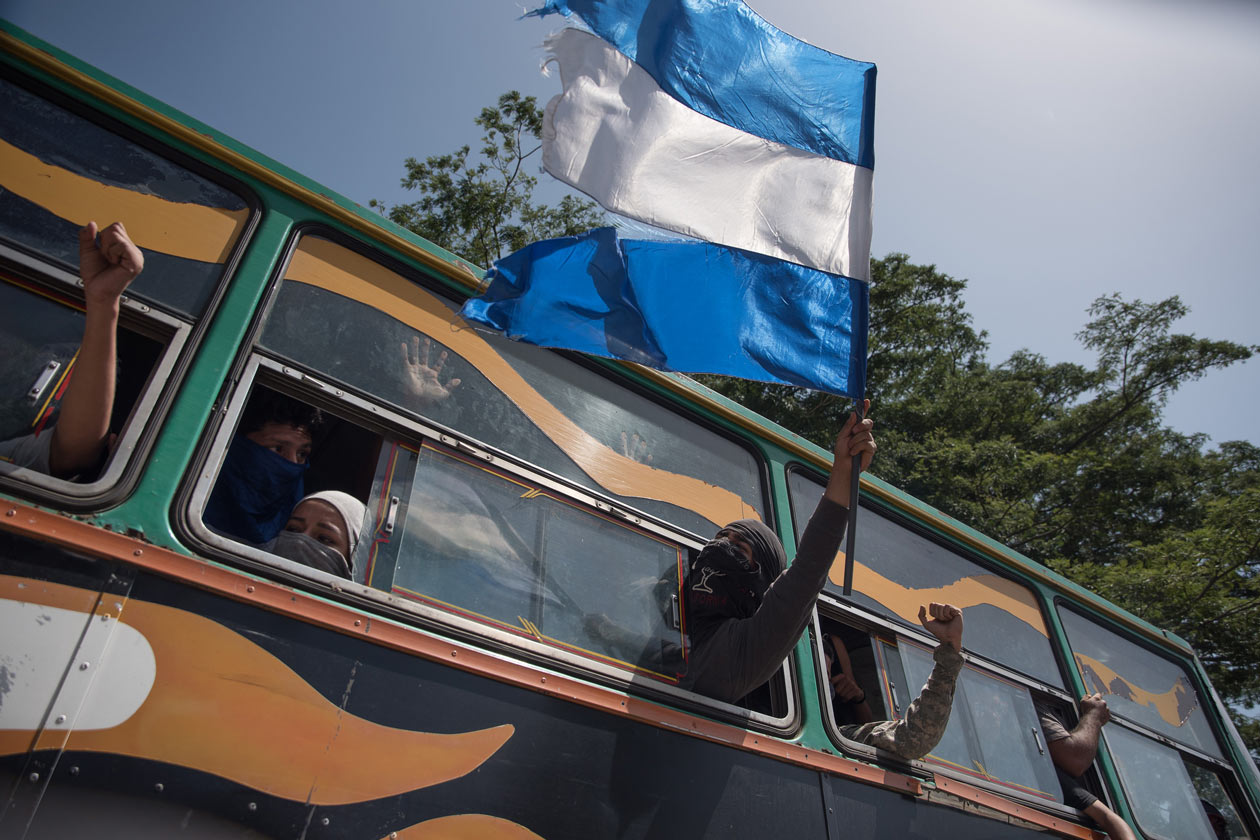
Photo of the moment the students from the UNAN-Managua were freed after remaining under attack inside the church for over twelve hours. Carlos Herrera / Niu
His mother would go to see him when she could. “He always had other young people around him, as if they were his bodyguards,” she explains.
When the regime ordered that brutal attack against the university as part of the so-called “Operation Clean-up”, Jonathan knew that they had to resist. They managed to defend themselves as best they could with rocks and mortars, but after several hours a number of them were wounded. The chapel of the Divine Misery church was left without electricity by the gunfire, and all of those taking shelter within were left in darkness. Suddenly, the cry was heard: “They got Chino. (Nicaraguan nickname for anyone with slightly narrow or slanted eyes).
Jonathan had always dreamed of becoming a doctor. He’d learned first aid and during the months of the occupation he attended to a number of wounded. The night of the attack he wanted to help his friend. He carried Gerald “El Chino” Vazquez on his broad shoulders and in the darkness tried to help him. But his efforts were in vain.
Now the only thing he has to remember him by is a set of earphones that his friend had given him. “I hope they haven’t taken them away in jail, because he clung to them with great affection,” his mother indicated.
Alma recalls that she didn’t sleep that whole night, over twelve long hours of suffering. She felt happy when she learned that thanks to the mediation of the Nicaraguan Episcopal Conference the liberation of over 200 people taken to the Managua Cathedral had been achieved. Together with hundreds of family members she ran to wait anxiously the moment to embrace her son. “I never imagined that I’d be separating from him so soon after that,” she declares.
Jonathan was captured on September 23, while he was gathered outside a super market with a group of his companions, waiting to begin a protest march. Hours later, images began to circulate on social media, saying that he was missing. A message alerted his mother, who ran desperately to the feared El Chipote jail to look for him.
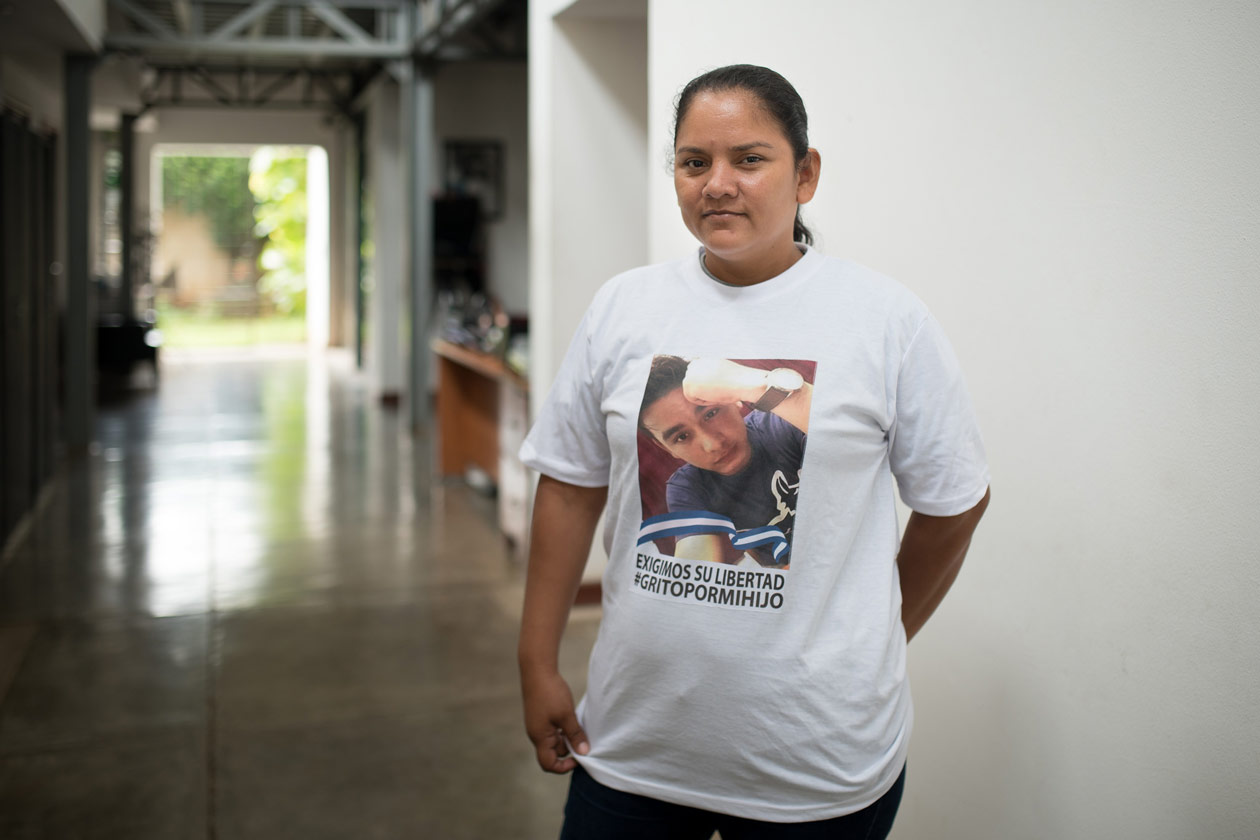
Alma Gonzalez, Jonathan Lopez’ mother, wearing a t-shirt demanding that her son be freed. Photo: Carlos Herrera / Niu
A few hours before the news of his arrest, Alma was already concerned because she’d texted her son, “Are you okay?” and he hadn’t replied. She asked him this question every day, and he always answered back, “Yes”.
Alma insistently questioned some police officials about her son, but it wasn’t until several hours later that they confirmed he was being held in the El Chipote jail.
Since the day of his arrest, she goes to the jail every day although she can’t see him. Together with other mothers of the political prisoners she waits outside the jail to find out how their children are.
“We have to be here, because we don’t know what day they’re going to be taken to court,” she explains.
Before the civic rebellion in April, Jonathan was studying economics at the UNAN in Managua. He led a normal life for a young man of 20, although he didn’t like to go out and party but preferred to spend his time playing video games.
His backpack always held his notebooks, a Bible, some earphones and a chessboard.
From an early age, Jonathan didn’t like to go out and play in the street. The only thing he entertained himself with was chess. “He learned all at once, just came home one day and told me he wanted a chess set,” Alma says.
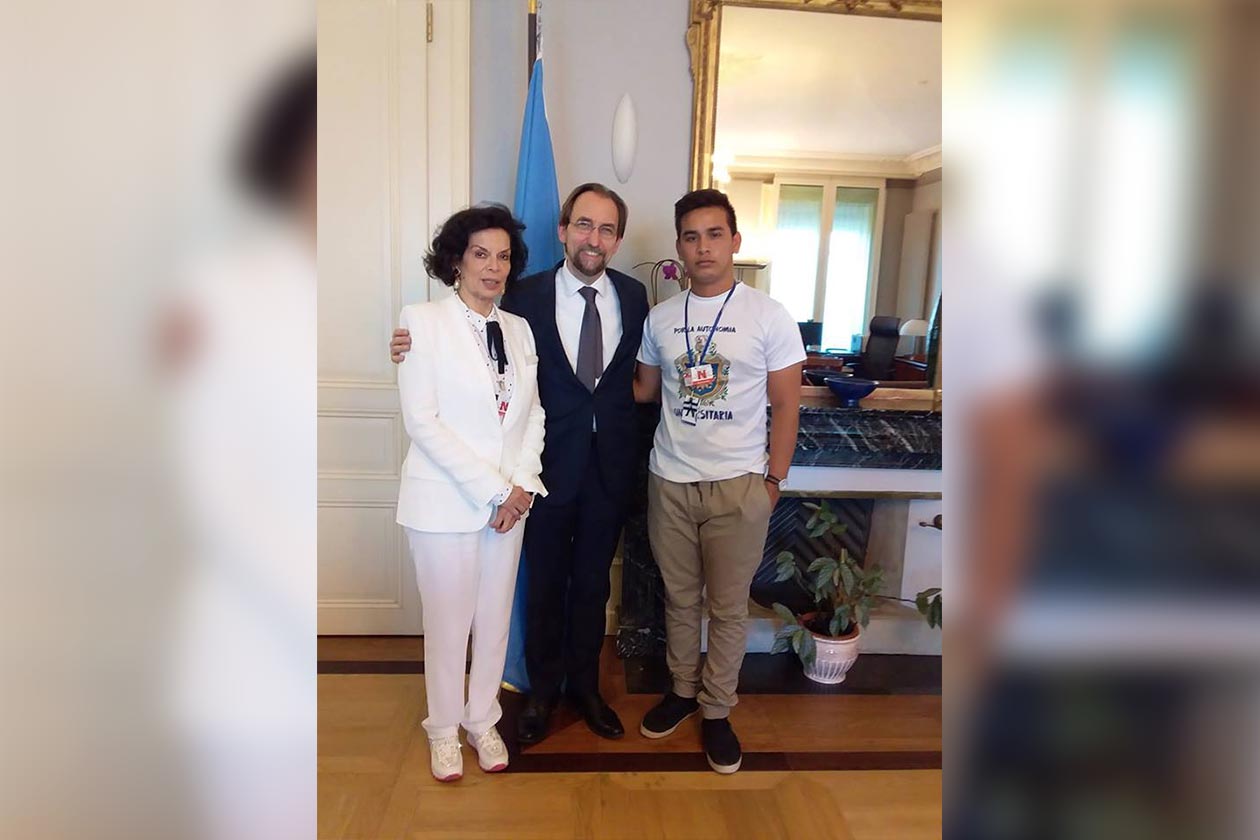
Jonathan, together with Zeid Ra’Ad Al Hussein, former United Nations High Commissioner for Human Rights, and activist Bianca Jagger. Courtesy photo / Niu
By 12, he had earned recognition as the best chess player in the city of Granada; in his last year of high school he won fourth place in the national championships. Chess remained his passion: “He’d close the door to his room and practice there for hours,” his mother recalls.
Jonathan always remained very close to his mother. Mayela, a young woman who was in the occupation with him, states that he was always talking about her. “He adores his mother, because she fought hard for everything he has. He admires her.”
While part of the University Coordination for Democracy and Justice, Jonathan went to Geneva, Switzerland, to meet with the United Nations High Commissioner for Human Rights. His mother tried to convince him to remain in Switzerland, and not to return, so as to avoid risking more danger. “I told him to stay there, that it was better for him, but he just got annoyed,” Alma relates.
Jonathan was determined to return although he knew that he was risking his freedom. “He was always aware that at any moment they could pick him up,” comments Eduardo, one of his classmates, who also assures that his friend was always unselfishly helping others. Another old friend notes that Jonathan was always the top student in his class and class president. Everyone looked to him to solve problems, and he was always a spokesman for his classmates.
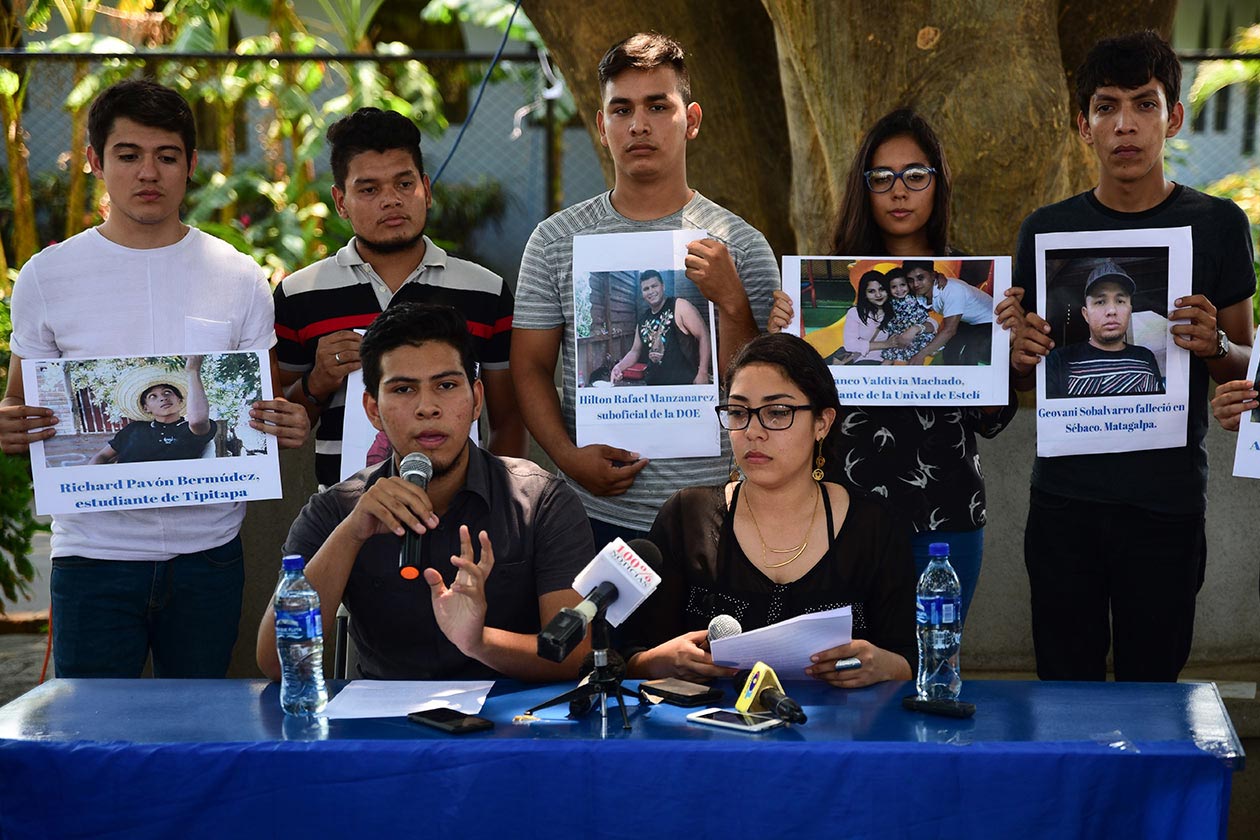
Jonathan (standing, in the center) while the University Coordinator for Democracy and Justice invites the university students to unite against the regime of Daniel Ortega. Photo: Carlos Herrera / Niu.
Enrieth Martinez, one of Lopez’ companions in the University Coordinator for Democracy and Justice, also notes that he always looked out for others.
“He was always concerned about the welfare of other people. There were a lot of times when his leadership consisted in being able to represent everyone’s interests and to take into consideration each one of those around him,” she explains.
He never got annoyed when he was questioned. “At first, he was closed-minded on some topics, but little by little he himself would begin to say that his thinking was changing. For example, when he met with the young women who were feminists they made him question deeply the topic of masculinity, and how he expressed himself,” Martinez reveals.
He’s also stubborn. Despite being in jail, he assures his mother that he wants to continue in the struggle. She’s only been able to see him twice, but every day she asks the police about him. “They always tell me that he’s alright, that he’s very quiet and respectful,” she affirms.
He has no signs of blows or torture, and he’s told his mother to have faith. “He made a pact with God, and he’s sure that he’s going to get out because he hasn’t done anything wrong,” his mother insists.
PUBLICIDAD 3M
PUBLICIDAD 3D